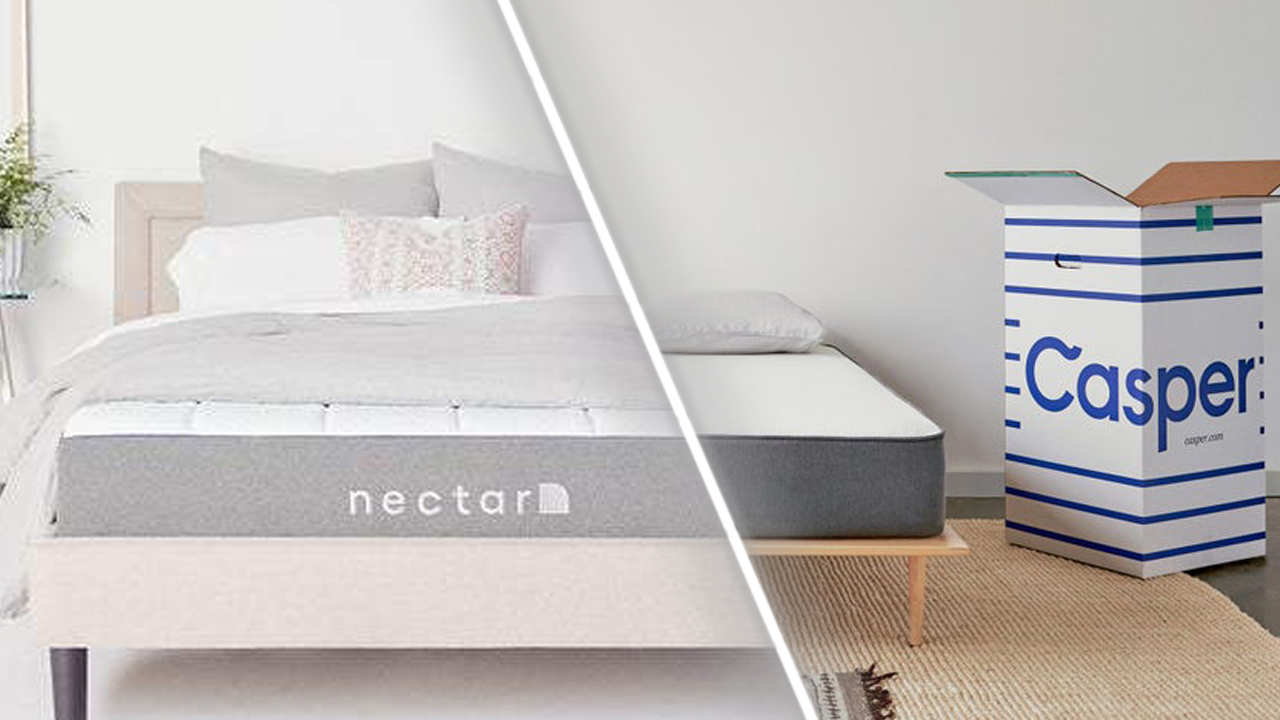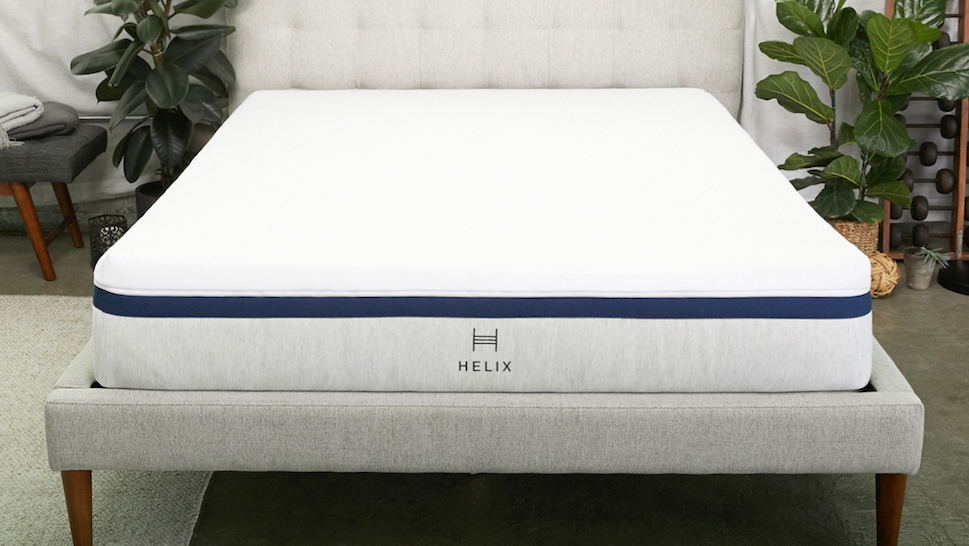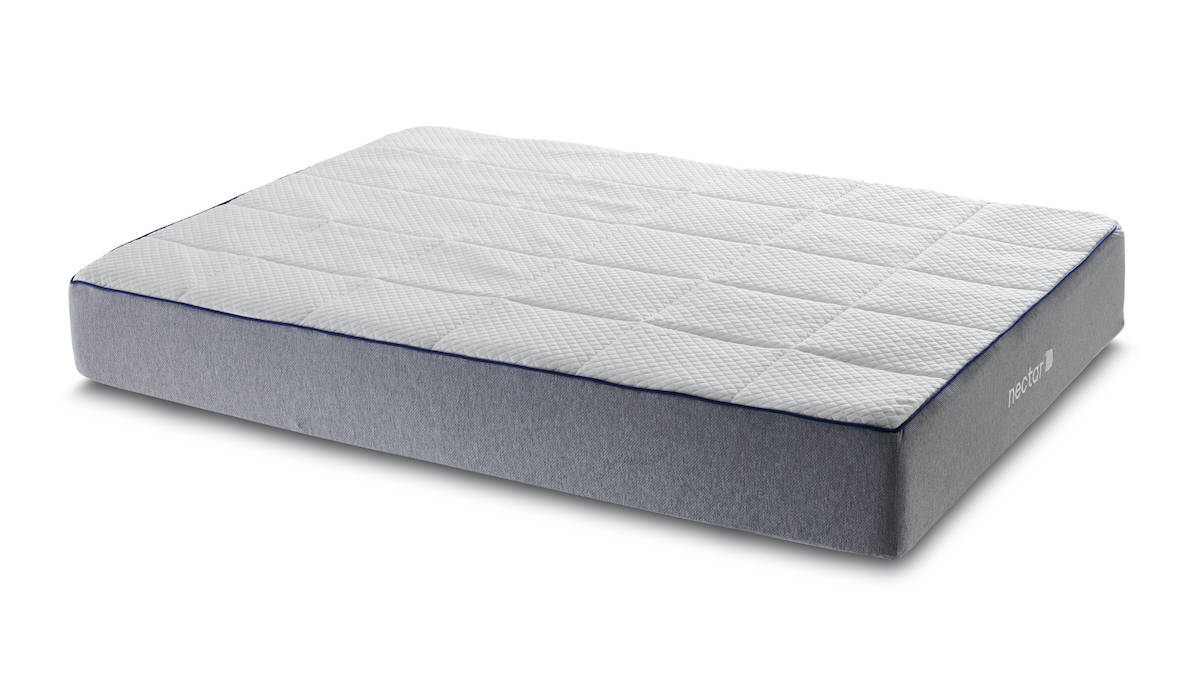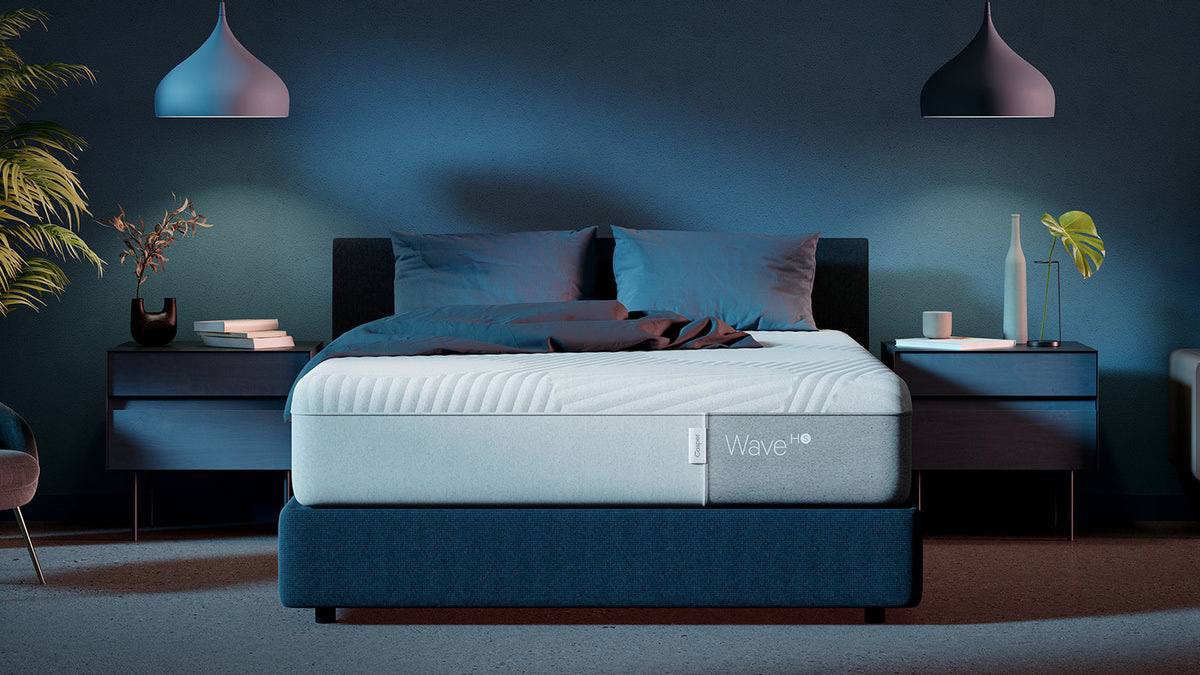Memory foam vs gel memory foam in mattresses: how each affects your sleep
Plus, how to pick between gel foam vs memory foam mattresses

Here at Tom’s Guide our expert editors are committed to bringing you the best news, reviews and guides to help you stay informed and ahead of the curve!
You are now subscribed
Your newsletter sign-up was successful
Want to add more newsletters?

Daily (Mon-Sun)
Tom's Guide Daily
Sign up to get the latest updates on all of your favorite content! From cutting-edge tech news and the hottest streaming buzz to unbeatable deals on the best products and in-depth reviews, we’ve got you covered.

Weekly on Thursday
Tom's AI Guide
Be AI savvy with your weekly newsletter summing up all the biggest AI news you need to know. Plus, analysis from our AI editor and tips on how to use the latest AI tools!

Weekly on Friday
Tom's iGuide
Unlock the vast world of Apple news straight to your inbox. With coverage on everything from exciting product launches to essential software updates, this is your go-to source for the latest updates on all the best Apple content.

Weekly on Monday
Tom's Streaming Guide
Our weekly newsletter is expertly crafted to immerse you in the world of streaming. Stay updated on the latest releases and our top recommendations across your favorite streaming platforms.
Join the club
Get full access to premium articles, exclusive features and a growing list of member rewards.
Modern mattresses are often made using a variety of materials, but memory foam remains one of the most popular. It’s durable, and the classic ‘hug’ it provides is comforting, supportive and capable of relieving pressure points from the moment you lie down. In fact, many of our best mattress recommendations contain memory foam.
But even the best memory foam mattresses can fall foul of foam’s biggest problem: trapping heat. Manufacturers have come up with umpteen ways to combat this, one of which is the inclusion of gel in memory foam.
But the gel isn’t just for cooling purposes, and it isn’t the only difference between these two types of foam. Here we give you all the information you need on memory foam vs gel memory foam so that you can decide what’s best for your sleep and body type.
What is memory foam in mattresses?
- Memory foam is designed to ‘hug’ and contour the body
- It provides excellent pressure relief for your whole body
- It limits motion transfer, making it a good choice for couples
As we explain in our feature answering what is a memory foam mattress, this type of foam is a type of polyurethane foam (the technical name for it is viscoelastic polyurethane foam).
It was originally developed by NASA in the 1960s for use in the inside of aircraft seats but has, over time, trickled down to the mattress industry.
Polyurethane is treated with certain chemicals that increase its density and viscosity, causing the material to react with your body heat and slowly adapt to the shape of your body.

Interesting fact: memory foam isn’t a single material but rather a classification for a group of similar foams. This is why you’ll find memory foam available in different firmness ratings from soft to firm, and with a number of different response times (how long it takes them to regain their original shape after contouring your body).
Get instant access to breaking news, the hottest reviews, great deals and helpful tips.
There are two main types of regular memory foam mattress: traditional and open-cell. Traditional foam is made from a polyurethane by-product and has closed cells that trap heat. Open-cell foam is designed with spongy passages that enable heat to escape as you sleep.
Examples of popular standard memory foam beds:
- Saatva Loom and Leaf
- Helix Midnight (read our Helix Midnight Mattress review)
- Zinus Green Tea (read our Zinus Green Tea Memory Foam mattress review)
What is gel memory foam in mattresses?
- Gel memory foam provides a cooler surface to sleep on
- Like plain foam, it molds to the body and supports the spine
- Gel memory foam is a little bouncier than plain memory foam
Gel memory foam first appeared in 2011 and was created to help keep body temperatures down, as traditional memory foam often led to sleepers overheating at night. Research shows that people sleep better in a cool environment, so overheating will lead to frequent wake-ups and broken sleep. Gel draws heat away from your body to keep you cool.
Gel is infused into foam in a number of ways. Some mattresses in a box incorporate a gel pad layer on top of the mattress, for example, while others place this layer in between other layers.

Gel can also be poured into the foam mold as it sets or. However the most popular method is for it to be placed within the layers in bead form.
The gel is designed to provide extra support for your lower back and neck, as well as adding more bounce to the mattress.
Examples of popular gel memory foam beds:
- Casper Wave Hybrid (read our Casper Wave Hybrid Snow mattress review)
- Nectar Mattress (read our Nectar Mattress review)
- DreamCloud Premier (read our DreamCloud Mattress review for a cheaper alternative)
Memory foam vs gel memory foam: Similarities
Both types of mattress are based around memory foam so naturally there are quite a lot of similarities. The main ones are:
Motion isolation – No other mattress material helps isolate movement as well as memory foam. The ‘hug’ of memory foam prevents the movement you’ll find with other materials, although a traditional memory foam bed will have slightly better motion isolation than a gel one. They’re a great choice if you share your bed with a restless sleeper.
Choice of firmness – Plain memory and gel memory foam mattresses are available in a range of firmness ratings from soft to firmer. In the past, memory foam was seen as quite a firm material, but it’s now easy to know how to choose a mattress with the right firmness for your body.
Support – Both offer a supportive surface that cradles sleepers and provides excellent pressure relief. The foam adapts to a person’s unique sleeping position and does an excellent job of promoting neutral spinal alignment.
Pain relief – Memory and gel memory foams are an excellent choice for back pain sufferers, with the ‘hug’ of the foam helping to promote neutral spinal alignment whilst cradling and supporting the joints.
Memory foam vs gel memory foam: Differences
Although memory foam and gel memory foam have similarities, they also have big differences. The three factors that separate them may well tip your preference towards one over the other:
Temperature – This is the deal-breaker for most people. Gel memory foam feels and sleeps far cooler than many traditional memory foam, which is why you’ll find it in many of this year’s best cooling mattresses. The cooling gel is designed to wick away heat and moisture, as well as to regulate body temperature through the night.

Of course, gel isn’t the only cooling substance added to memory foam to cool it down – you’ll also find mattresses using graphite and copper, to name a couple. Open cell memory foam also enables heat to escape and many manufacturers also add extra perforations in the foam to aid airflow.
Price – There’s no escaping the fact that gel memory foam is more expensive as the extra materials needed to make it bump up the price. For some people, the higher price tag is worth it to remain comfortably cool all night, and there’s always a mattress sale to lower the price. If you’re on a tight budget though, a gel memory foam mattress isn’t the best choice. Instead you’re better off with one of the best cheap mattresses and most of those are made from standard foam.
Bounce – Memory foam and gel memory foam each offer excellent motion isolation as the ‘hug’ of the foam greatly deadens movement. However, the addition of gel adds more of a bouncy feel. This means that gel foam mattresses spring back into shape faster. They also make it easier to change position at night if you’re a restless or combination sleeper.
Memory foam vs gel memory foam: which should you buy?
Both memory foam and gel memory foam are excellent choices for people needing deep pressure relief when they lie down. That famous ‘hugging’ feel allows for more body contouring and exceptional support at pressure points.
Back pain sufferers in particular often rave about how much better they feel after sleeping on memory foam. Both types of foam also offer excellent spinal support and keep your spine in neutral alignment to protect your posture and prevent any new neck and back pain.
To sum it up, if you sleep hot opt for a gel memory foam mattress. The gel will keep you cool at night, regulating body temperature and wicking away heat and moisture. The added bounce from the gel is also a better option for combi sleepers, as it will be easier for you to change position in the night.
Those on a budget will find a memory foam mattress far cheaper – look for one that has holes or perforations in the foam to aid airflow. Aerated foam won’t cool a mattress as much as gel, but it will help. A traditional memory foam bed will also offer deeper sinkage and is an ideal choice of mattress for side sleepers.

Jo Plumridge is an experienced mattress reviewer with several years' experience covering all things mattresses and sleep, and who tests memory foam, hybrid and organic mattresses. What Jo doesn't know about a boxed mattress isn't worth knowing, so naturally we tasked her with producing a series of features for Tom's Guide looking at all aspects of mattresses, from how to pick between latex and memory foam (it's a tricky one), to the seven mistakes people make when buying a mattress for the first time. When testing the DreamCloud Luxury Hybrid for Tom's Guide, Jo said: "I loved the back support and pressure relief it offered. Plus, it looks far more expensive than it is." When she isn’t writing about sleep, Jo also writes extensively on interior design, home products and photography.
 Club Benefits
Club Benefits










